
Director
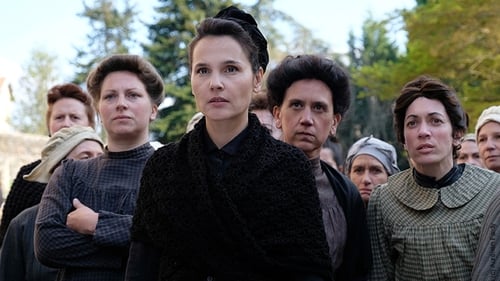
Director
Long live the strike! Lucie Baud, one of the pioneers of the women's movement, went with creativity, fighting spirit and the power of singing against the weapons of male-dominated capitalist society in nineteenth-century France. The film, based on true events, describes the ambitious fight of a silk moth. She stood up for the rights of the female working class to end maltreatment and oppression once and for all. For the revolution in women's rights, she even put her family back and fought to the end for their beliefs.

Writer
Long live the strike! Lucie Baud, one of the pioneers of the women's movement, went with creativity, fighting spirit and the power of singing against the weapons of male-dominated capitalist society in nineteenth-century France. The film, based on true events, describes the ambitious fight of a silk moth. She stood up for the rights of the female working class to end maltreatment and oppression once and for all. For the revolution in women's rights, she even put her family back and fought to the end for their beliefs.

Director

Director
The story of 2 sailors on July 21 1969

Director

Writer
Several boys aged seven to fourteen, have formed their own secret support group as a result of parental neglect and abuse. The group is however more keen on revenge against the adults on their island. They break into houses and steal items, not for money, more for the thrill. They vandalize homes and torment the occupants. One man decides to seize the opportunity to do away with his wife and blame it on the intruders.

Director
Several boys aged seven to fourteen, have formed their own secret support group as a result of parental neglect and abuse. The group is however more keen on revenge against the adults on their island. They break into houses and steal items, not for money, more for the thrill. They vandalize homes and torment the occupants. One man decides to seize the opportunity to do away with his wife and blame it on the intruders.

Scenario Writer

Director
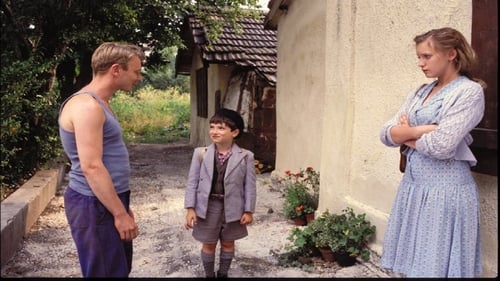
Writer
During the German occupation of France, a young woman - Marie - finds a Jewish boy in her room. His parents and other Jewish neighbors have been just been deported, but Maurice (the boy) escaped. Marie decides to hide him, secretly.

Director
Jean and Paddy haven't recovered from Ben's death. Ben was Paddy's lover but also Jean's. Their threesome filled their existence. Today, while they still love each other, Jean and Paddy are torn apart.

Writer
Madeleine is with her lover, Jean-Paul, when her husband arrives home and catches the two together. Madeleine kills her husband and tells Jean-Paul to flee before the police arrive. After Jean-Paul drives away, he picks up a hitchhiker. When the car, stolen by the hitchhiker, explodes, police believe the dead hitchhiker is Jean-Paul. Madeleine takes up with Jean-Paul's brother, Bastien, while Jean-Paul, arriving in Strasbourg, is mistaken for the heir to a fortune. The detective on the case spends more time writing crime novels than investigating real-life crimes.

Dialogue
Фильм рассказывает историю бурной жизни «маркизы» Дю Пак - дамы, имевшей дурную репутацию во время правления короля Людовика ХIV. Красавица и куртизанка, выросшая в нищете, сумела обольстить огромное количество знатных мужчин и достичь высочайшего положения в обществе. Даже Мольер и Расин, как, впрочем, и сам «Король-Солнце» - Людовик ХIV - не смогли устоять перед ее очарованием.

Adaptation
Фильм рассказывает историю бурной жизни «маркизы» Дю Пак - дамы, имевшей дурную репутацию во время правления короля Людовика ХIV. Красавица и куртизанка, выросшая в нищете, сумела обольстить огромное количество знатных мужчин и достичь высочайшего положения в обществе. Даже Мольер и Расин, как, впрочем, и сам «Король-Солнце» - Людовик ХIV - не смогли устоять перед ее очарованием.

Director
While researching their subject’s life for their feature My Life and Times With Antonin Artaud, co-directors/writers Gerard Mordillat and Jerome Prieur made a documentary on the famed French actor/writer/poet who died in 1948 at the age of 50

Director
May, 1946, in Paris young poet Jacques Prevel meets Antonin Artaud, the actor, artist, and writer just released from a mental asylum. Over ten months, we follow the mad Artaud from his cruel coaching of an actress in his "theatre of cruelty" to his semi-friendship with Prevel who buys him drugs and hangs on his every word. Meanwhile, Prevel divides his time between Jany, his blond, young, drug-hazed mistress, and Rolande, his dark-haired, long-suffering wife, who has a child during this time. Cruelty, neglect, poverty, egoism, madness, and the pursuit of art mix on the Left Bank.

Director
A large family crams into a three-room flat in a drab suburb.Twelve people ,soon joined,out of the blue, by the prodigal son, released from jail.To make matters worse,the TV set , then the sofa and finally the refrigerator vanish into thin air.Neverthelesss, life goes on ,with mom's nervous breakdowns , dad's absences ;The daughter, Julie, an abandoned social worker,is always sobbing ; her sister , rehearsing the "Hebrew slaves chorus" is eagerly waiting for her drafted fiancee.

Director
A new shorter and uncensored TV version of Patrons - Télévision (1979). The dates "1978 / 1991" are used in reference to the "missing years", the amount of time during which the film was not authorized to be shown on TV in France.

Screenplay
The French military is known for its draconian treatment of soldiers who desert or otherwise tangibly register disagreements with official policy. In this movie the story takes place during the Algerian War (late 1950s). Alain (Luc Thullier) is a deserter who has been sent back to the front lines as a member of a special disciplinary battalion. Such battalions are given only the most dangerous assignments, and most of the soldiers in them are expected to die in combat. As his unit skirmishes with the enemy, it suffers many losses until Alain is the only one left. Freed from supervision once more, he escapes again, this time to Tunisia, with the intention of trying to inform the French public about what is really happening in Algeria.

Director
The French military is known for its draconian treatment of soldiers who desert or otherwise tangibly register disagreements with official policy. In this movie the story takes place during the Algerian War (late 1950s). Alain (Luc Thullier) is a deserter who has been sent back to the front lines as a member of a special disciplinary battalion. Such battalions are given only the most dangerous assignments, and most of the soldiers in them are expected to die in combat. As his unit skirmishes with the enemy, it suffers many losses until Alain is the only one left. Freed from supervision once more, he escapes again, this time to Tunisia, with the intention of trying to inform the French public about what is really happening in Algeria.
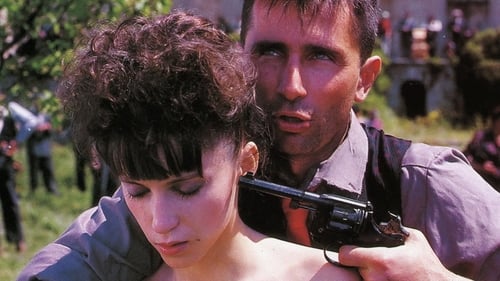
Scenario Writer
A bombing raid makes travelling companions of a blind man, Fernand, and Antoine, a criminal. Fernand is a virgin and is depending on his new friend to find him a woman. But to Antoine, on the run, his fellow victim is more a burden than a boon.

Director
A bombing raid makes travelling companions of a blind man, Fernand, and Antoine, a criminal. Fernand is a virgin and is depending on his new friend to find him a woman. But to Antoine, on the run, his fellow victim is more a burden than a boon.

Director
Billy Ze Kick is name of a fictional serial killer in a bedtime story that a police inspector reads to his daughter. Soon three girls turn up murdered in his neighbourhood, and the killer leaves a note signed "Billy Ze Kick."

Director
In this charming, semi-autobiographical look at his politicized past, director Gerard Mordillat focuses on the ironic, the wistful, and the sometimes ludicrous events that spin off from the Communist/anarchist upbringing of his main character, Maurice Decques (François Cluzet). Maurice's tendency to swing over to the bourgeosie in his adult career as a caterer to social gatherings of varying stature is also reflected in the woman he marries - a Czech whose family chose Paris over Moscow "because the USSR has concentration camps" as she told her shocked Communist father-in-law. When Maurice is caught in the 1968 student demonstrations in Paris, the officer who hauls him off is soon recognized as an old childhood buddy, and instead of heading to jail, the policeman/friend takes Maurice home. As the police van drives out of view, the two buddies are seen as young kids, sitting on the hood of a car and dreaming about the future.

Writer
In this charming, semi-autobiographical look at his politicized past, director Gerard Mordillat focuses on the ironic, the wistful, and the sometimes ludicrous events that spin off from the Communist/anarchist upbringing of his main character, Maurice Decques (François Cluzet). Maurice's tendency to swing over to the bourgeosie in his adult career as a caterer to social gatherings of varying stature is also reflected in the woman he marries - a Czech whose family chose Paris over Moscow "because the USSR has concentration camps" as she told her shocked Communist father-in-law. When Maurice is caught in the 1968 student demonstrations in Paris, the officer who hauls him off is soon recognized as an old childhood buddy, and instead of heading to jail, the policeman/friend takes Maurice home. As the police van drives out of view, the two buddies are seen as young kids, sitting on the hood of a car and dreaming about the future.

Assistant Director

Director
Jacques Lemonnier of IBM France, Francois Dalle of L'Oreal and other ultrapowerful French moguls are surprisingly candid -- and cold-blooded -- as they discuss their attitudes about business in this startling 1978 documentary. After sounding off about unions, strikes, hierarchy and management, the subjects realized how callous they sounded and managed to convince the French government to suppress the film.
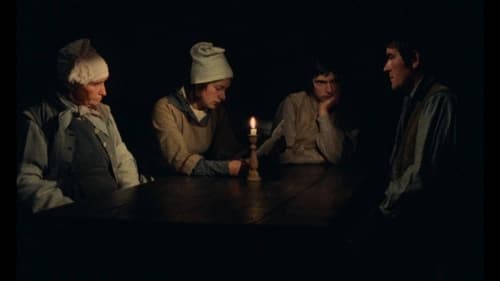
Assistant Director
Based on documents compiled by leading French philosopher Michel Foucault, this unique and original film charts the gruesome events which took place in a Normandy village in 1835, when a young man, Pierre Rivière, murdered his mother, sister and brother before fleeing to the countryside. With a cast made up of real-life villagers from the area where the events took place, the detailed re-enactments and careful attention to the gestures of their ancestors serve to create an intense and sometimes disturbing atmosphere of hyper-realism. Details of the crime and of the trial that followed are told from varied perspectives, including the written confession of Pierre himself, and form a rich and complex narrative that interrogates the concepts of “truth” and “history”.
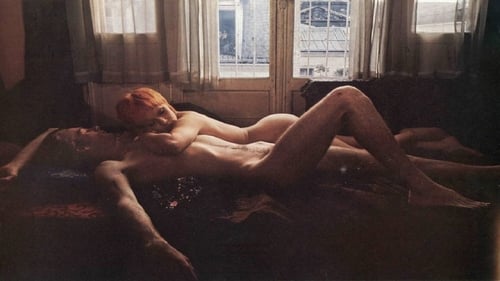
Assistant Director
The main character is a woman trapped in the long stifling marriage in a boring province. She has an affair with a traveling photographer, follows him to Paris, and then has a series of unsatisfactory but interesting relationships, one of which is with a woman.





















